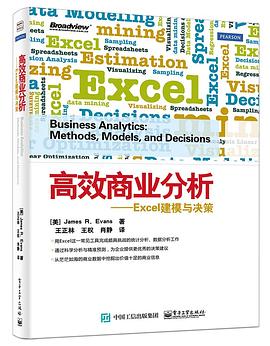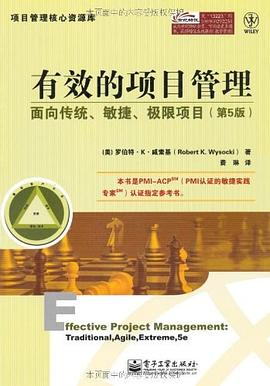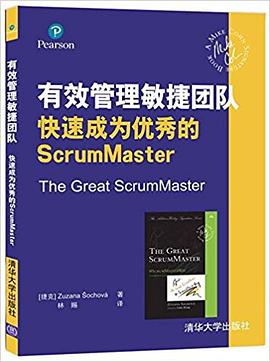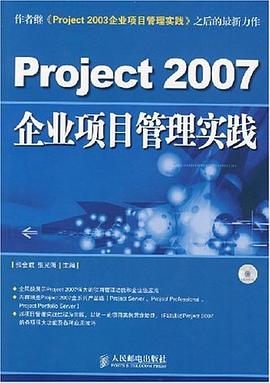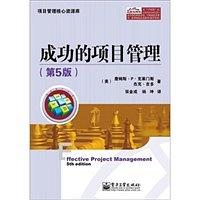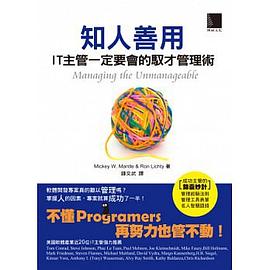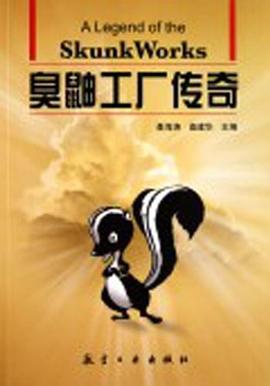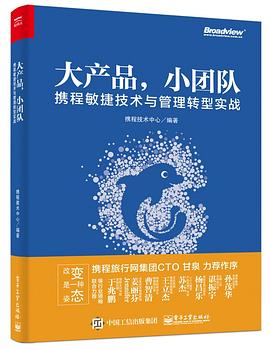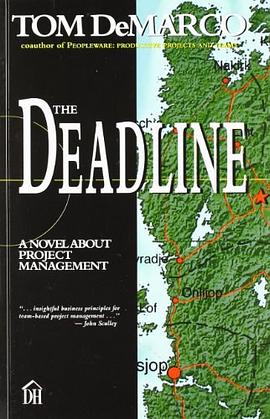

具体描述
Like economics, the discipline of software development suffers from a weakness that prevents the resolution of competing theories, in that it is generally impossible to perform controlled experiments. It would take an extremely brave manager to ever try out two competing development theories by having two teams build the same product simultaneously. However, it is possible to borrow a technique from theoretical physics and perform thought experiments. Such an experiment would involve having more than one team develop the same product simultaneously, but using different techniques. That type of experiment is the premise of this novel.
The main character is a recent victim of downsizing who is kidnapped and taken to a formerly communist country where the educational level is high and the costs are low. Once there, he succumbs to his fantasies and agrees to perform the experiment of his dreams. With six products to build and a large staff of developers, he splits them into eighteen groups where each product is being built by three teams simultaneously. Each group of the three then uses a different development method. Throw in impossible deadlines and you have a microcosm of software development.
It would appear that such a premise would guarantee a boring book, but nothing could be further from the truth. The book is entertaining and enduring, as developers will recognize most of their development problems, albeit couched in somewhat unique circumstances. Many of the leading figures in the theory of software development management make cameo appearances, including a certain very rich man. The end result is a true stroke of genius that has somewhat of a surprise ending, but actually quite natural, given the current climate in the computer business.
It is rare when a book about the management of software development is not as dull as baked dirt, and this book is indeed the exception. Not only is it entertaining, but you can even learn some management skills in the process.
作者简介
目录信息
读后感
《最后期限》-项目管理重要原则 优质管理的四大要素: 选择正确的人。 为他们分配正确的工作。 保持他们的积极性。 帮助团队凝聚起来并保持团队的凝聚力。 (其他一切都只是"文案"。) 安全和变化 除非感到安全,否则人们就不能去迎接变化。 在...
评分关于项目管理,其实,我真的没有多大的感觉,本书说的是软件设计的项目管理,是靠我最近的一个项目。 不过,所有项目的互通感,让我了解到 一、项目的组建,包括项目成员人数,项目产品经理的任命,职能 1、人刚刚好,就好,如果所有的项目功能都设计好了以后,那就是任务...
评分最近偶然接触项目,不知道从哪里入手的时候,网上无意中发现了这本书。强大的百度老师满足了平日的各种问题解疑。 这本项目管理方面的书不是教科书风格,按照各种逻辑框架顺序来说明怎么开展项目,而是小说风格由主人公被绑架开始。虚构的国家开始接受新项目,一段段的章节最后...
评分 评分本文为转载, 原文出处http://book.douban.com/subject/discussion/1032073/ 优质管理的四大要素:选择正确的人、为他们分配正确的工作、保持他们的积极性、帮助团队凝聚起来并保持团队的凝聚力。 一、安全和变化 01除非感到安全,否则人们就不能去迎接变化。 02...
用户评价
**第二段评价:** 我向来对那种情节推进缓慢,却能将世界观构建得滴水不漏的小说抱有极高的期待,而这一次,我的期望值被远远超出了。作者对场景氛围的渲染简直达到了出神入化的地步,你几乎能闻到书中那个阴沉的港口散发出的咸湿气息,感受到雨水打在老旧窗户上的节奏。这不是那种靠着爆炸场面堆砌起来的刺激,而是源自环境本身带来的压迫感。阅读过程中,我多次停下来,不是因为故事情节不够吸引人,而是因为我需要时间去消化那些极富哲理性的内心独白。书中对“系统性失灵”的描绘,尤其令人不寒而栗,它没有采用宏大的政治批判口号,而是通过几个小人物在巨大机构面前的无力挣扎,展现了那种深入骨髓的绝望。我感觉自己像是被拽进了一个精心设计的社会模型中,每一步都充满了宿命论的色彩,读起来酣畅淋漓,但也留下了沉甸甸的思考余地。
评分**第五段评价:** 这本书成功地营造了一种罕见的、关于“时间与记忆”的宿命感。它不是那种传统意义上的悬疑小说,其内核更偏向于一种对人类集体无意识的探索。作者运用了大量象征性的意象——反复出现的符号、特定的天气模式、乃至某种特定的音乐片段——来构建一种无形的叙事线索,这些元素在不同的章节中被重新激活,每次都带着新的情感重量。我发现自己经常会回溯前面的章节,以确认某个场景是否在暗示着未来会发生的事情。对于喜欢沉浸式体验的读者来说,这绝对是一场盛宴。它要求读者全神贯注,不能有一丝一毫的分心,否则就可能错过那个决定性的微小细节。总而言之,这是一部需要耐心去品尝的文学佳酿,它的回味悠长,并且会随着时间的推移,在你脑海中逐渐演化出新的意义层次。
评分**第一段评价:** 这部作品的叙事结构简直是一场精妙的迷宫,作者似乎毫不费力地在时间线上跳跃,将过去与现在交织成一张错综复杂的网。初读时,我得承认,有好几次差点迷失在那些看似不经意的支线情节里,它们像幽深的岔路口,引人遐思却又让人感到些许不安。然而,正是这种不确定性,营造出一种令人上瘾的阅读体验。人物的心理刻画极其细腻,每一个决策的背后都潜藏着深刻的动机,远非简单的善恶二元论可以概括。我尤其欣赏作者对“选择的重量”这一主题的探讨,它并非直接阐述,而是通过一系列紧迫的场景和人物间微妙的互动自然流淌出来。比如,书中某位配角的沉默,比任何激烈的辩论都更能说明问题,那种压抑感,直到合上书本,仍萦绕在心头。整体而言,这是一本需要反复品味的书,它的魅力不在于一蹴而就的理解,而在于探索过程中不断发现的微小宝石。
评分**第三段评价:** 说实话,我一开始对这本书的期待值不高,以为这又是一部充斥着陈词滥调的类型小说。但很快,我就发现自己错得离谱了。这本书最令人惊艳之处在于其语言的张力与节奏感。作者的文笔时而如冷冽的冰刀,直刺人心最脆弱的部分;时而又像夏日午后的微风,带着一种近乎慵懒的疏离感,让人在不经意间放松警惕。最棒的是,它成功地塑造了一个极度复杂且矛盾的主人公。这个角色既有令人钦佩的坚韧,也有令人无法原谅的缺陷,他不是英雄,更不是恶棍,他只是一个在极限压力下被雕刻出来的人形。书中的对话设计堪称教科书级别,每一句简短的交锋都蕴含着多重含义,读者必须像一个侦探一样去解码言语背后的潜台词。阅读体验是动态的,你会不断地修正自己对局势和人物的判断,这种智力上的互动感,极大地提升了阅读的乐趣。
评分**第四段评价:** 这部小说最让我震撼的地方,在于它对“真相”这一概念的解构。它不是在追寻一个明确的终极答案,而是在展示追寻过程本身如何扭曲和重塑了参与者的认知。叙事视角频繁地在不同角色的意识流之间切换,这种手法处理得极其成熟,有效地避免了任何一方的叙述被视为绝对真理。我非常喜欢作者在处理关键转折点时的克制。没有戏剧性的高潮和铺天盖地的解释,一切都以一种近乎日常的平静方式发生,但正是这种平静,反而将冲击力放大到了极致。读完最后一章,我合上书本,发现自己对故事的核心事件依然存有几处存疑,但奇怪的是,这种“未解”的状态反而比一个被强行缝合的结局要令人满意得多。它迫使读者必须带着自己的理解和怀疑继续生活,让故事的生命力得以延续。
评分本以为这是一本讲管理的书,最后才发现是码农的YY片儿
评分软件工程课推荐的枕边读物
评分台湾旧书店随手买的,豆瓣竟然有~
评分前段和中间部分可以,ending不清不楚,可能由于篇幅所限吧。
评分项目管理,重在管理人
相关图书
本站所有内容均为互联网搜索引擎提供的公开搜索信息,本站不存储任何数据与内容,任何内容与数据均与本站无关,如有需要请联系相关搜索引擎包括但不限于百度,google,bing,sogou 等
© 2026 book.quotespace.org All Rights Reserved. 小美书屋 版权所有



